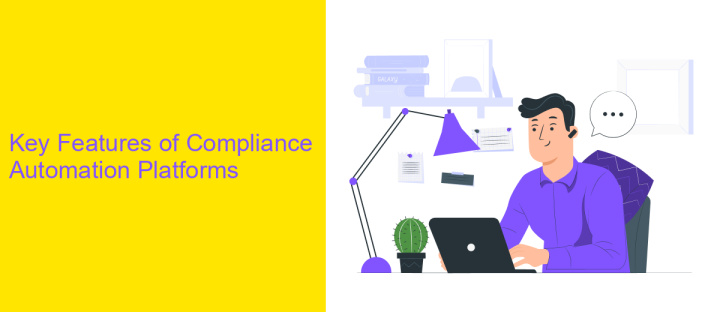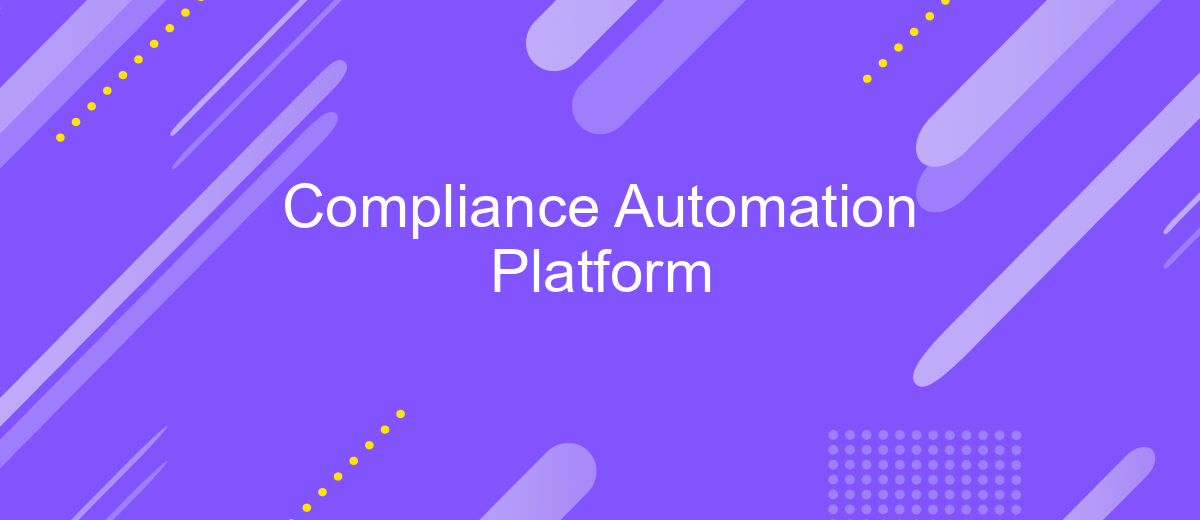Compliance Automation Platform
In today's rapidly evolving regulatory landscape, businesses face increasing challenges in maintaining compliance. A Compliance Automation Platform offers a robust solution by streamlining and automating compliance processes. This technology not only reduces the risk of human error but also saves valuable time and resources, allowing organizations to focus on their core operations while ensuring adherence to regulatory requirements.
Introduction to Compliance Automation Platforms
Compliance Automation Platforms are essential tools for organizations aiming to streamline their compliance processes. These platforms help in automating the monitoring, reporting, and management of compliance-related tasks, ensuring that businesses adhere to regulatory requirements efficiently. By leveraging advanced technologies such as artificial intelligence and machine learning, these platforms can significantly reduce the risk of human error and enhance overall compliance accuracy.
- Automated monitoring of compliance activities
- Real-time reporting and analytics
- Integration with existing systems and workflows
- Enhanced data security and privacy
- Scalability to meet growing compliance needs
Implementing a Compliance Automation Platform can lead to substantial cost savings and improved operational efficiency. By automating repetitive tasks, organizations can free up valuable resources and focus on strategic initiatives. Furthermore, these platforms provide comprehensive insights and analytics, enabling proactive management of compliance risks. As regulatory landscapes continue to evolve, adopting a Compliance Automation Platform becomes increasingly crucial for maintaining organizational integrity and compliance.
Key Features of Compliance Automation Platforms

Compliance automation platforms offer a range of key features designed to streamline and enhance regulatory adherence. These platforms typically include automated monitoring and reporting tools that continuously track compliance status and generate real-time insights. This allows organizations to quickly identify and address potential compliance issues before they escalate. Additionally, these platforms often feature customizable dashboards and alerts, providing users with a comprehensive view of their compliance landscape and enabling them to make informed decisions promptly.
Another essential feature is the integration capability with various systems and data sources. Services like ApiX-Drive facilitate seamless integration by enabling automated data transfer between different applications, ensuring that compliance data is consistently updated across all platforms. This not only reduces manual data entry but also minimizes the risk of errors, thereby enhancing overall compliance accuracy. Moreover, these platforms frequently offer document management systems that store and organize compliance-related documents, making it easier for organizations to access and manage critical information.
Benefits of Using Compliance Automation Platforms

Compliance automation platforms offer a multitude of benefits for organizations striving to meet regulatory requirements efficiently. These platforms streamline compliance processes, reducing the time and resources needed to manage regulatory obligations. By automating repetitive tasks, they minimize human error and ensure consistent adherence to compliance standards.
- Increased Efficiency: Automation reduces the manual workload, allowing staff to focus on more strategic tasks.
- Cost Savings: By minimizing the need for extensive manual labor, organizations can significantly cut compliance-related costs.
- Real-Time Monitoring: Continuous monitoring and real-time alerts help in identifying and addressing compliance issues promptly.
- Data Accuracy: Automated systems ensure data integrity and accuracy, reducing the risk of non-compliance due to human error.
- Scalability: These platforms can easily adapt to growing regulatory requirements, making them suitable for organizations of all sizes.
Implementing a compliance automation platform not only enhances operational efficiency but also provides peace of mind by ensuring that regulatory requirements are consistently met. As a result, organizations can focus on their core business activities, confident that their compliance needs are being effectively managed.
Considerations When Choosing a Compliance Automation Platform

When selecting a compliance automation platform, it is crucial to consider several factors to ensure it meets your organization's needs. The right platform can streamline compliance processes, reduce risks, and save time and resources.
First, evaluate the platform's ability to integrate with your existing systems. Seamless integration will ensure a smooth transition and continuous operation without disrupting your current workflows. Additionally, consider the platform's scalability to accommodate future growth and changing regulatory requirements.
- Usability: Ensure the platform is user-friendly and offers intuitive navigation for all team members.
- Customization: Look for features that allow customization to fit specific compliance needs and industry standards.
- Support and Training: Assess the availability of customer support and training resources to help your team maximize the platform's potential.
- Cost: Consider the total cost of ownership, including initial setup, subscription fees, and any additional expenses.
Lastly, review user feedback and case studies to gauge the platform's effectiveness in real-world scenarios. By thoroughly evaluating these considerations, you can choose a compliance automation platform that best supports your organization's compliance strategy.
Future of Compliance Automation Platforms
The future of compliance automation platforms is set to be transformative, driven by advancements in artificial intelligence and machine learning. These technologies will enable platforms to not only detect and report compliance issues but also predict and prevent them. This proactive approach will significantly reduce the risk of non-compliance, ensuring that organizations can maintain regulatory standards more efficiently. Moreover, the integration of blockchain technology will enhance data security and transparency, making it easier for organizations to demonstrate compliance to regulators.
Another key development will be the seamless integration of compliance automation platforms with other business systems. Services like ApiX-Drive will play a crucial role by providing robust integration solutions that connect various applications and streamline workflows. This will enable organizations to automate compliance processes across different departments, ensuring a unified and comprehensive approach to regulatory adherence. As these platforms continue to evolve, they will become indispensable tools for businesses aiming to navigate the increasingly complex regulatory landscape with ease and confidence.
FAQ
What is a Compliance Automation Platform?
How does a Compliance Automation Platform work?
What are the benefits of using a Compliance Automation Platform?
Can a Compliance Automation Platform integrate with other systems?
Is it difficult to implement a Compliance Automation Platform?
Time is the most valuable resource in today's business realities. By eliminating the routine from work processes, you will get more opportunities to implement the most daring plans and ideas. Choose – you can continue to waste time, money and nerves on inefficient solutions, or you can use ApiX-Drive, automating work processes and achieving results with minimal investment of money, effort and human resources.

